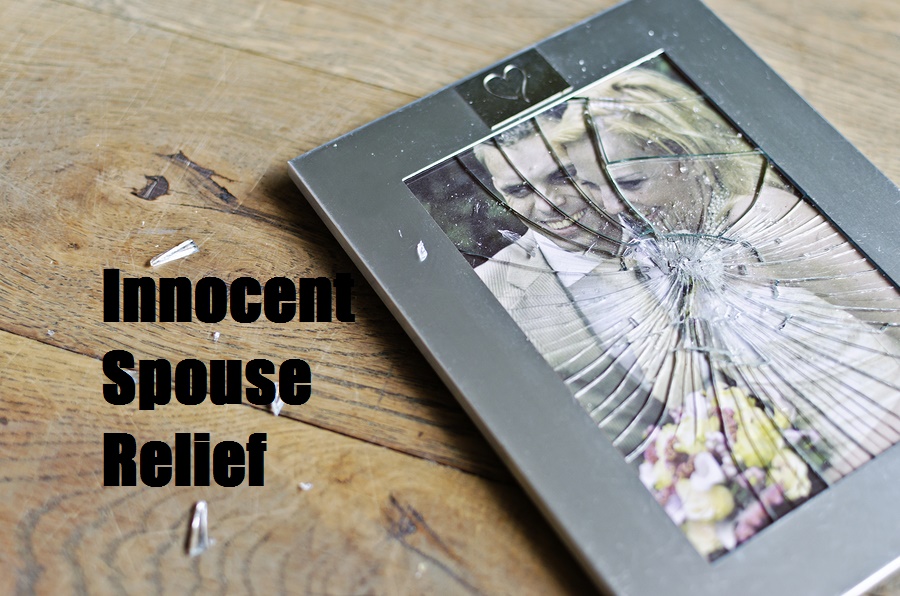
If you had no knowledge of your ex-spouse’s business dealings and tax issues, you may be eligible for innocent spouse relief from the IRS.
Innocent Spouse and Injured Spouse are two terms that often get confused when people are looking at IRS issues. You are an injured spouse if the IRS takes your tax refund to pay for a debt that is owed by your spouse. You may be able to retrieve some (if not all) of that money by filing an injured spouse claim. For more information on that see Injured Spouse Relief: http://robergtaxsolutions.com/2011/03/injured-spouse-relief/
Innocent Spouse is where your spouse (or rather ex-spouse) has done something where there is tax liability for which you don’t have any responsibility for. Let me give you an example:
Abusive spouse is running around and gambling behind your back. You’re living in a hovel while spouse is living large, playing at the casino and spending money on fancy hotels and alcohol. You finally escape the situation and divorce bad spouse only to find that the IRS is after you for spouse’s tax debt from the gambling winnings. You had no knowledge of the money, and the spouse was forging your signature on the tax returns. This is where you would file for innocent spouse relief.
It used to be that you had to file an innocent spouse claim within two years of the actual tax return. Most innocent spouses weren’t able to file that quickly. It often takes longer than that to realize there’s a problem, or get out of an abusive situation. Fortunately, the IRS realized that and they’ve eliminated the two year rule. If you have applied for innocent spouse relief before and were denied because of the two-year rule, you may re-apply.
There are three types of Innocent Spouse Relief:
Innocent Spouse Relief – you filed a joint return and there is understated tax that is due to erroneous items like unreported income or unsubstantiated deductions, and you had no knowledge of these things. (Example, you get an audit letter about income your ex had that you had no knowledge of.)
Separation of Liability Relief – this is where an unpaid tax liability is divided between you and your ex-spouse for taxes that were filed while together. No refunds are granted in this case, only a separation of liability for unpaid taxes. (You get divorced and you agree that you will pay $X amount of tax which was your responsibility and your ex will pay $Y amount. You pay your share and your ex doesn’t so the IRS goes after you for the tax money. This is a good time to file for Separation of Liability Relief.)
Equitable Relief – if you don’t qualify under one of the above categories but it would be grossly unfair to force you to pay the tax, like in the abusive spouse example above.
A couple of other general things you need to know. First, you can’t have transferred assets or done anything fraudulently try to avoid paying taxes. You either had to not know about the tax owed or you were forced to sign documents against your will. Often, there is some type of abuse in these innocent spouse cases, you will be required to substantiate that. This isn’t an easy process. The worst part is if you file for Innocent Spouse Relief, your ex will be informed. If you are the victim of an abuser, you need to make sure that you are physically safe before you file this type of claim.
To explore if you might qualify for Innocent Spouse Relief, try this interactive questionnaire on the IRS website: http://www.irs.gov/Individuals/Explore-if-you-are-an-Eligible-Innocent-Spouse
Here’s the form that you file for Innocent Spouse Relief: http://www.irs.gov/pub/irs-pdf/f8857.pdf
You file this separately; it does not go with your tax return. It gets mailed to
Internal Revenue Service
Innocent Spouse
Stop 840-F
PO Box 120053
Covington, KY 41012
OR,
You may fax the Form 8857 and attachments to the IRS at 855-233-8558.
Make sure that you put your social security number on every page of the attachments.
